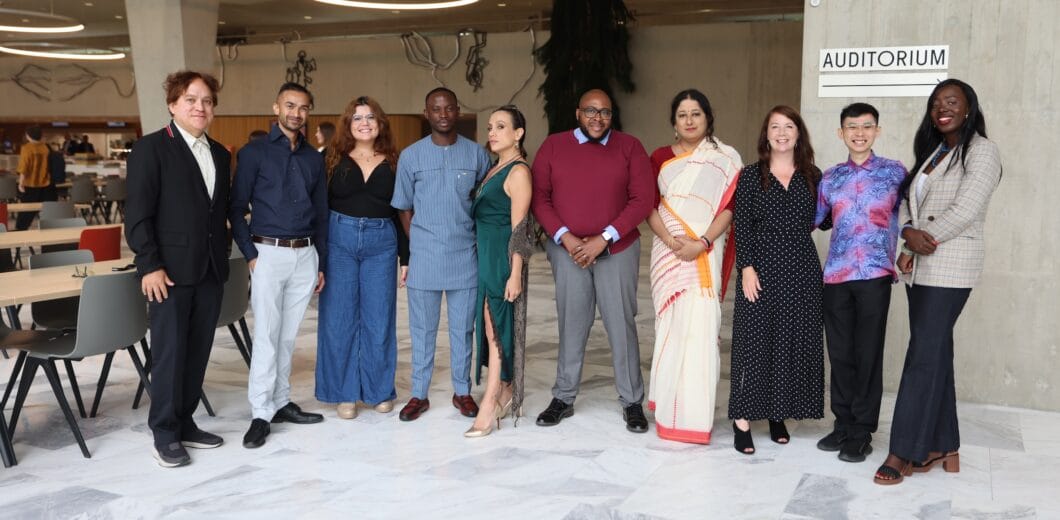The Programme Coordinating Board (PCB) was created to serve as the governing body of UNAIDS. The PCB includes a Nongovernmental Organization (NGO) Delegation composed of five members and five alternates that represent five geographic regions: Africa, Asia and the Pacific, Europe, Latin America and the Caribbean, and North America.
What is the role of the NGO Delegation on the PCB?
The position of NGOs on the UNAIDS Programme Coordinating Board (PCB) is critical for the effective inclusion of community voices in the key global policy forum for HIV and AIDS. The NGO Delegation represents the perspectives of civil society, including people living with HIV, to the UNAIDS PCB. The main role of the NGO Delegation is to advocate with Members States (governments) and Cosponsoring organizations for meaningful improvements in the implementation and evaluation of AIDS policies and programmes. It does so by:
- Participating objectively and independently in the workings and decision-making of the PCB;
- Undertaking various forms of proactive and informed advocacy within the structures and processes of the PCB;
- Enhancing the transparency and accountability of relevant PCB decision-making and policy-setting, helping to meet requirements for upward accountability (towards the PCB and other delegations) and downward accountability (towards the people, communities, and constituencies affected by HIV)
The NGO Delegation fulfills its role guided by its vision, mission, and guiding principles.
What is the composition of the NGO Delegation?
Representatives of ten NGOs form the NGO Delegation, representing five UN regions (Africa, Asia & the Pacific, Europe, Latin America & the Caribbean, and North America). Since its inclusion in the PCB in 1995 until December 2021, the NGO Delegation has had 88 organizations sit on the board, involving 111 representatives. The NGO Delegation has participated in all PCB meetings to date, bringing expertise, lived experience, and collective wisdom generated from its internal discussions and outreach with constituencies.
How are NGOs on the Delegation selected?
The composition of the NGO Delegation changes every year. The delegates serve a term of two years, with a possible extension to three, based on the results of their performance assessment. Every year, delegates rotate out of the delegation at the end of their term and are replaced by newly recruited delegates. New delegates are usually recruited in the third quarter of each calendar year. Vacancies are announced on this website and brought to the attention of civil society via our mailing list and social media channels.
The NGO Delegation’s recruitment is guided by ECOSOC resolution 1995/2, which states that ‘The selection of the five nongovernmental organizations will be determined by the NGOs themselves from among those either in consultative status with ECOSOC or in relationship with one of the cosponsoring organizations or on the roster of NGOs dealing with matters pertaining to HIV/AIDS. The PCB shall formally approve the NGOs nominated.’
In short, applying NGOs are shortlisted by all members of the NGO Delegation. A selection panel consisting of an NGO Delegate from the same region as the vacant seat, an NGO Delegate from any other region, plus a civil society representative from the same region as the vacant seat interviews the shortlisted candidates. Based on the outcomes of these interviews, the full delegation chooses the most suitable candidate to fill the vacant seat on the NGO Delegation. The current recruitment and selection procedures are codified in the Delegates’ Manual.
